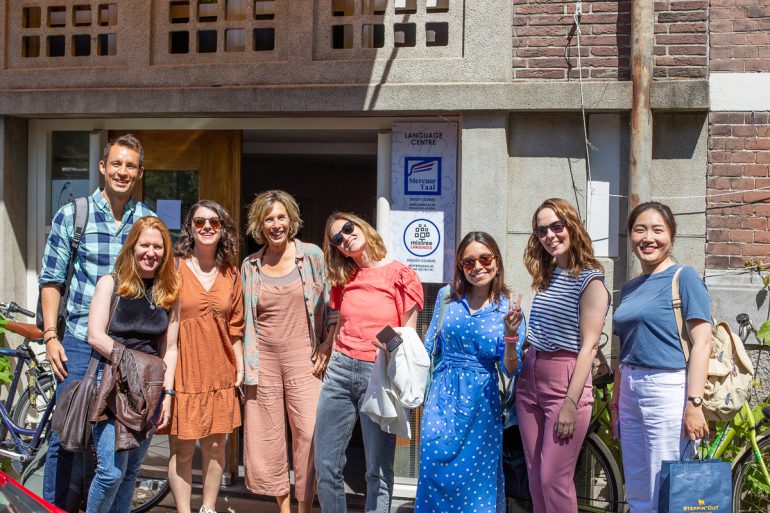Amsterdam, a city proud of its quality of life, multiculturalism, and diversity, where English is more often than not becoming a requirement for employment, higher education and professional development. Because of this, English has also become vital for cross-cultural communication and building a community.
English in Amsterdam
Welcome to Amsterdam, the city of tall people, bikes and cheese-lovers! You might expect to hear the guttural “g” on every street corner, but instead, English is being spoken everywhere. This reflects the city’s international character, where people from all over the world come together for business, tourism and leisure. With around 180 nationalities calling it home, Amsterdam is a true melting pot of cultures.
And the Dutch speak English so proficiently that you might mistake it for their native language. One of the reasons for this is that, unlike other countries, the Dutch don’t dub foreign language media, and they consume a lot of British and American content.
Even so, the English spoken in Amsterdam is unique. Thanks to the fact that the Dutch don’t like to beat around the bush, this translates into the way they speak English, removing the complexity of British politeness and American colloquialisms. Thus, making Amsterdam very attractive for English language learners.
Communication is Key: Unlocking the Power of English
But no matter the variety, all these English speakers have one goal in common: the ability to communicate and transfer meaning. The ability to speak English is a powerful tool that crosses borders and cultures. However, despite the benefits, many people are hesitant to use it because they fear being discriminated against for not speaking the “right” way. The truth is, there is no one “correct” way. To overcome this fear, it is important to find a safe and welcoming space where you feel accepted and are encouraged to express yourself freely.
Building a Community for Learning English
When learning a language “no man is an island”; building a community can be a great way to achieve your goal. It helps you gain motivation, exchange ideas, and even learn from one another. Moreover, sharing the experience of both frustration and pride when making progress can foster a sense of belonging and build long-lasting relationships. So, think of joining language exchange events, and attending social gatherings to connect with other English learners. In this way, you can create a supportive environment in which you can practice and grow.
In conclusion, by overcoming the fear of speaking and building a community for learning, we can unlock the power of English and connect with people from all over the world.
This article has been written by MixTree Languages.
MixTree Languages is a non-profit language school located in the heart of Amsterdam, that provides high-quality English courses for adults in a friendly and multicultural community.
